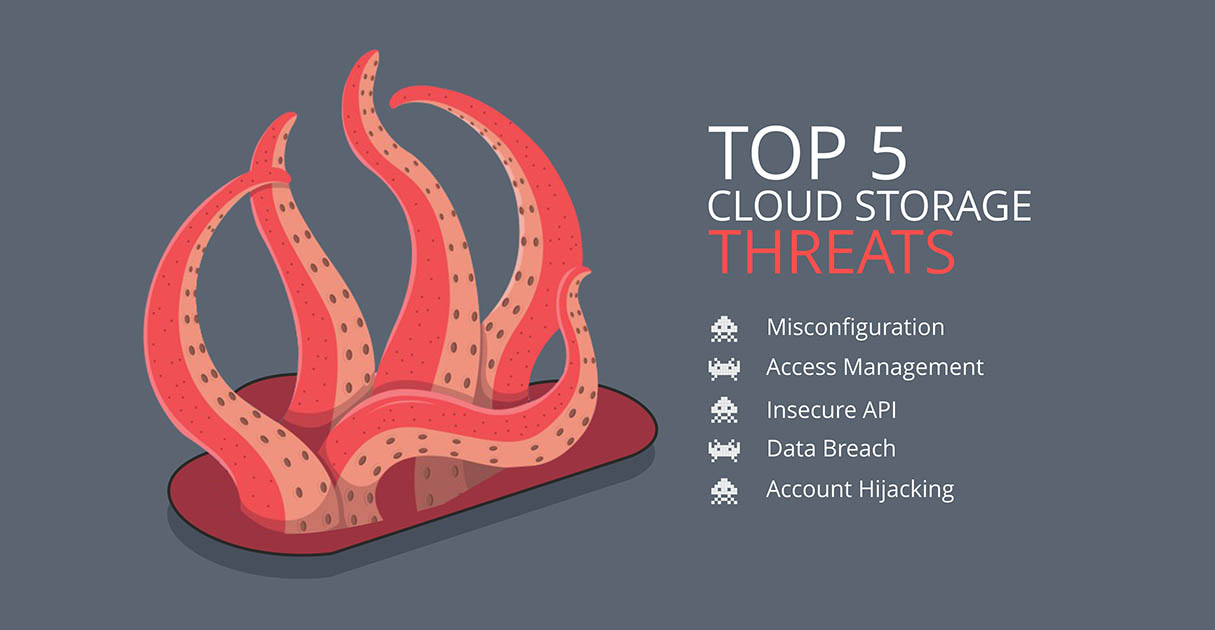
The key objective of cloud storage has always been to provide an easily accessible and secure platform for data storing, sharing and editing for people globally. However, every coin has two sides. Cloud storage brings a lot many features to the table, but they are followed by inherent cyber threats.
In this article, you can glance over a few cyber threats that raise concern and how FileAgo deals with all of them.
Misconfiguration
Cyber threats can be harmful only if security configurations of a cloud interface have loopholes. A single flaw in the portal’s security is enough to cause a data breach after which the users on that particular cloud are at a risk of losing their invaluable data forever.
Numerous factors may be responsible for weak security on a cloud. However, an organised and well-surveyed cloud infrastructure is fully capable of eliminating the concern of misconfiguration, thereby keeping the data of each and every user safe and secure.
Access management
The concern of Access Management can be tactfully dealt with by following a strict access policy and an authentication protocol that is on the qui vive. A sluggish approach with access management may allow unauthorised users to access, edit and even delete data off the cloud.
Platforms that only bring Single-Factor Authentication (SFA) to the table are the most susceptible to an attack that might allow any random user to access and tamper with the users’ data. Any attacker will only need compromised credentials of a user to clear the SFA barrier.
Insecure API
An Application Programming Interface (API) is basically the interface that carries a cloud portal to the users around the globe. A cloud API will allot storage and network resources for applications on the cloud.
An insecure API could act as an open invitation to unauthorised users, who will be free to meddle with the portal and exfiltrate user data, without any hassle. Using a proper API framework, encrypted transmission, and a strong security layout, the cloud can be secured.
Data breach
Data Breach is undoubtedly one of the biggest concerns that revolves around any cloud storage platform. How easy is it to edit, collaborate and save data on the cloud from anywhere these days? It is a piece of cake. Easy task saddled with a major risk factor on the side - Data Breach.
A questionable security model, coupled with careless sharing of data links, that are public, can allow any attacker to swoop into the cloud and steal the user’s data without breaking a sweat. Using a proper security model, strong encryption, and standard API framework will help a cloud platform dodge the Data Breach threats.
Account hijacking
Attackers do not always need to bypass bleak security to access a user’s data. Sometimes, on a Single-Factor Authentication (SFA) platform, a stolen password is enough to take control of an individual’s cloud storage.
An extremely strict security protocol needs to be followed to keep the account hijackers away. For starters, Two-Factor Authentication (TFA) comes in handy. Login to your cloud after TFA verifies your identity and you can continue working on a secured, encrypted server.
How does FileAgo deal with these concerns?
FileAgo is a SaaS (Software as a Service) based Cloud Storage Platform. Astute configuration of the portal ensures there are no loopholes that can be exploited. With the backend written entirely using Erlang, even if the server crashes, FileAgo recovers within a blink of an eye.
Security is the backbone of FileAgo. The portal uses Two-Factor Authentication (TFA), an access control list and event logs. FileAgo has implemented the unique Granular Permissions Model as well, making its cloud very safe and secure.
Users are free to edit, co-edit, share and save their data on the cloud under Military Grade Encryption (AES 256). Cyber threats are persistent, but FileAgo’s security is equally resilient.
